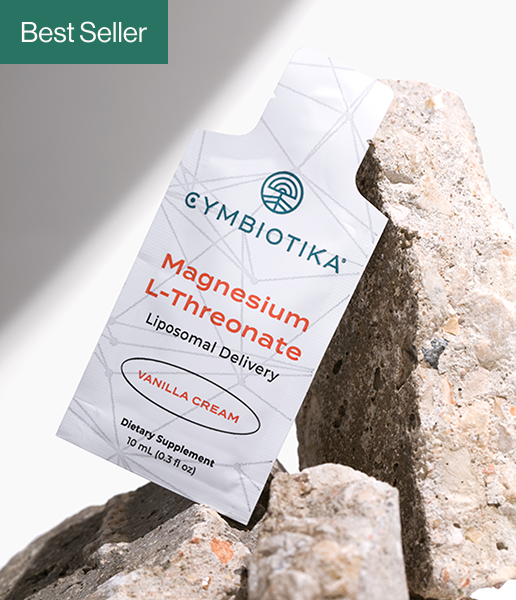
ZINC BISGLYCINATE
“The importance of micronutrients in health and nutrition is indisputable, and among them, zinc is an essential element whose significance to health is increasingly appreciated and whose deficiency may play an important role in the appearance of diseases. Zinc is one of the most important trace elements in the organism, with three major biological roles, as catalyst, structural, and regulatory ion. Zinc-binding motifs are found in many proteins encoded by the human genome physiologically, and free zinc is mainly regulated at the single-cell level. Zinc has critical effects in homeostasis, in immune function, in oxidative stress, in apoptosis, and in aging, and significant disorders of great public health interest are associated with zinc deficiency.
In many chronic diseases, including atherosclerosis, several malignancies, neurological disorders, autoimmune diseases, aging, age-related degenerative diseases, and Wilson's disease, the concurrent zinc deficiency may complicate the clinical features, affect adversely immunological status, increase oxidative stress, and lead to the generation of inflammatory cytokines. In these diseases, oxidative stress and chronic inflammation may play important causative roles. It is therefore important that the status of zinc is assessed in any case and zinc deficiency is corrected, since the unique properties of zinc may have significant therapeutic benefits in these diseases. In the present paper, we review the zinc as a multipurpose trace element, its biological role in homeostasis, proliferation and apoptosis and its role in immunity and in chronic diseases, such as cancer, diabetes, depression, Wilson's disease, Alzheimer's disease, and other age-related diseases.” (1)
“The oral bioavailability of zinc bis-glycinate is superior to zinc gluconate. In a study comparing the oral bioavailability of zinc bis-glycinate with zinc gluconate. The administration of bis-glycinate is safe and well tolerated and bis-glycinate significantly increased the oral bioavailability of zinc (+43.4%) compared with the gluconate. Participants who took the zinc bisglycinate had significant increases in blood levels of zinc compared to the zinc gluconate and placebo groups. Zinc bisglycinate resulted in significant increases in blood levels of zinc in all 10 subjects, while 6 of 10 women in the zinc gluconate group had no significant increase or even had a decrease in zinc blood levels” (7)
“Among the trace elements, zinc is one of the most used elements in biological systems. Zinc is found in the structure of more than 2700 enzymes, including hydrolases, transferases, oxidoreductases, ligases, isomerases, and lyases. Not surprisingly, it is present in almost all body cells. Preserving the stability and integrity of biological membranes and ion channels, zinc is also an intracellular regulator and provides structural support to proteins during molecular interactions. It acts as a structural element in nucleic acids or other gene-regulating proteins. Metallothioneins, the low molecular weight protein family rich in cysteine groups, are involved significantly in numerous physiological and pathological processes including particularly oxidative stress. A critical role of metallothioneins (MT) is to bind zinc with high affinity and to serve as an intracellular zinc reservoir. By releasing free intracellular zinc when needed, MTs mediate the unique physiological roles of zinc. MT expression is induced by zinc elevation, and thus, zinc homeostasis is maintained. That MT mediates the effects of zinc, besides having strong radical scavenging effects, points to the critical part it plays in oxidative stress. The present review aims to give information on metallothioneins, which have critical importance in the metabolism and molecular pathways of zinc.”(6)
“Zinc (Zn) is one of the most important trace elements in the body and it is essential as a catalytic, structural and regulatory ion. It is involved in homeostasis, in immune responses, in oxidative stress, in apoptosis and in ageing. Zinc-binding proteins (metallothioneins, MTs), are protective in situations of stress and in situations of exposure to toxic metals, infections and low Zn nutrition. Metallothioneins play a key role in Zn-related cell homeostasis due to their high affinity for Zn, which is in turn relevant against oxidative stress and immune responses, including natural killer (NK) cell activity and ageing, since NK activity and Zn ion bioavailability decrease in ageing. Physiological supplementation of Zn in ageing and in age-related degenerative diseases corrects immune defects, reduces infection relapse and prevents ageing. Zinc is not stored in the body and excess intakes result in reduced absorption and increased excretion. Nevertheless, there are cases of acute and chronic Zn poisoning.”(2)
“Zinc is essential for the immune system and elderly people have an increased probability for zinc deficiency, documented by a decline of serum or plasma zinc levels with age. Although most healthy elderly are not classified as clinically zinc deficient, even marginal zinc deprivation can affect immune function. Several striking similarities in the immunological changes during aging and zinc deficiency, including a reduction in the activity of the thymus and thymic hormones, a shift of the T helper cell balance towards TH2, decreased response to vaccination, and impaired functions of innate immune cells indicate that a wide prevalence of marginal zinc deficiency in elderly people may contribute to immunosenescence. Studies with oral zinc supplementation show the potential to improve the immune response of elderly people by restoration of the zinc levels, showing that balancing the zinc status may be a way to healthy aging. This review summarizes the current literature about zinc supplementation in the elderly and thereby defines the rationale for the immunological part of the ZINCAGE project.”(3)
“Zinc deficiency has demonstrated an association with the risk of asthma. This study aimed to evaluate the efficacy of zinc supplementation in reducing the severity of childhood asthma exacerbation. A number of 42 children with asthma exacerbation admitted to the hospital were randomized to receive either zinc bis-glycinate (30 mg elemental zinc/day) or a placebo in adjuvant to the standard treatment. The pediatric respiratory assessment measure (PRAM) was used to measure the asthma severity. The primary outcome was a change in asthma severity from the baseline to the end of study. The study found that PRAM score in the zinc group showed a more rapid decrease compared to the control group at the 24-hour intervals. At admission, overall mean serum zinc level was 63.8 mg/dL and 57.1% of children had zinc deficiency with no difference in prevalence between groups. PRAM scores did not differ between children with low and normal zinc status. In conclusion, zinc supplementation as the adjuvant therapy to the standard treatment during asthma exacerbation resulted in rapid lessening of severity.”(6)
Zinc’s key functions include the following:White blood cell production (to make natural killer cells, T-lymphocytes, and B-lymphocytes) for support of a healthy immune response, Testosterone production, Skin health and wound healing, Eye health, particularly the macula, Normal growth and development, Taste and smell, Supports Normal Blood Sugar, Quickens Healing, Essential for total wellness.
“ A balanced zinc homeostasis is crucial for either defending against invading pathogens or protecting the human body against an overactive immune system causing autoimmune diseases, chronic inflammation or allergies. In this regard, zinc can be considered as a gatekeeper of the immune system, since the adequate function of virtually all immune cells is highly zinc-dependent.” (9)
Zinc is a micronutrient that’s found in cells throughout your body. According to the National Institutes of Health (NIH), zinc is crucial to many aspects of your health. Here are a few examples of what zinc does:
Helps your immune system defend against viruses and bacteria
Supports your body’s protein production
Helps your body make DNA (the genetic material in all cells)
Supports your senses of smell and taste
Helps wounds heal
FOUND IN THE FOLLOWING PRODUCT(S)
CLINICAL RESEARCH
1. Zinc and human health: an update
2. Zinc: a multipurpose trace element
3. Correlation between zinc status and immune function in the elderly
4. Inflammation, genes and zinc in ageing and age-related diseases
5. Zinc Metabolism and Metallothioneins
6. Zinc Supplementation in Children with Asthma Exacerbation
7. A bioavailability study comparing two oral formulations containing zinc (Zn bis-glycinate vs. Zn gluconate) after a single administration to twelve healthy female volunteers
8. Efficacy of Adjunctive Zinc in Improving the Treatment Outcomes in Hospitalized Children with Pneumonia: A Randomized Controlled Trial
9. Zinc as a Gatekeeper of Immune Function
10. Zinc in Infection and Inflammation
11. Role of Zinc in Immune System and Anti-Cancer Defense Mechanisms










